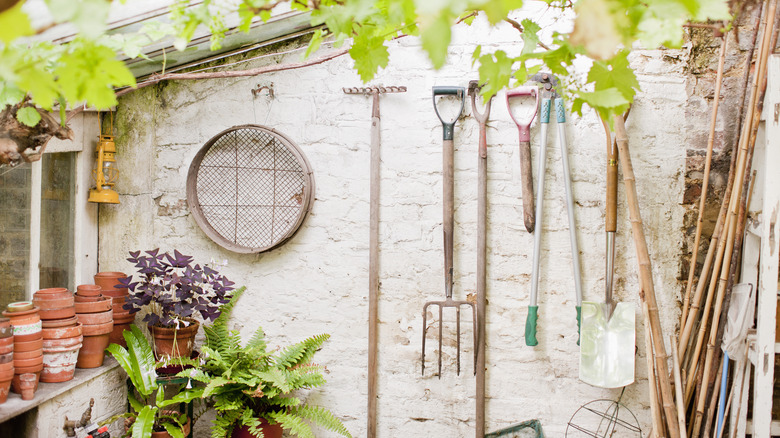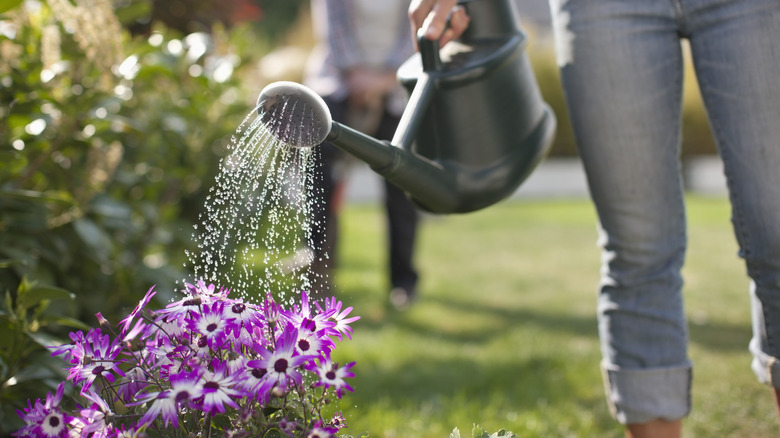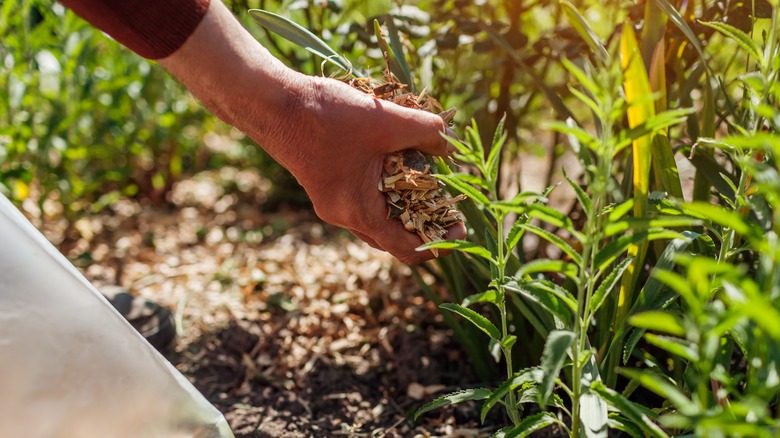The Common Gardening Tool You Should Consider Tossing Out Of Your Shed
An arsenal of tools can drastically increase a gardener's green thumb. However, we've learned through the ages that some tools are more beneficial to others. When it comes to digging around in the dirt, the age-old spade may actually not be as helpful as we once thought. In his piece on gardening myths for Science Focus, medical and science writer Dr. Stuart Farrimond explained that spades can even ruin the soil.
"Digging, we are told, will remove weeds, reduce 'compaction' by adding air or improving drainage, and boost soil fertility," he writes. "Research now shows that the reverse is actually true. ... Each slice with a spade severs countless fungal threads, through which plants receive nutrients and water, collapses the many tunnels forged by earthworms, and unearths sleeping plant-digesting microbes, stimulating them to feed and then release plumes of greenhouse gases into the air."
It is wild how even the small action of tilling a garden little by little with a spade can do so much unseen damage. According to Farmer's Weekly, even a small sample of soil can house over 500 species of fungi and over 31 miles worth of fungal mycelium or root systems. Tilling with a spade can drastically impact entire ecosystems.
Adopt a no-tilling philosophy
Tilling with a spade is not the only way, or often even the most helpful way, to keep soil in a garden healthy. As handy as a spade might be, proper planning may serve you and your garden a lot better. Many gardeners swear by the no-till method, which includes activities like composting to increase the well-being of the soil.
"The concept of no-till has been around for a couple of decades, but research has been very focused on field crops like wheat and corn, things largely grown in the Midwest," said Oregon State University Extension Service horticulturist Erica Chernoh. "There's not much on vegetable production or fruit. There's a lot to learn, and research is ongoing." She was speaking on the rising popularity of a no-till garden among home gardeners.
Not only will a no-till gardening lifestyle save your soil, it will also save a lot of time. When you're able to transition right to planting, you don't have to putz around with a spade. The beautification of a garden starts with a healthy soil base that simply doesn't need to be dug up and turned over.
Mulch up the garden
One way to make a no-till garden is to let Mother Nature take its course. Decomposing organic material provides necessary nutrients to the soil, which will help keep it healthy — something tilling doesn't do as it disrupts the natural environment. Compost is a terrific way to feed the soil, cultivating a nutritious home for your plants to thrive. In time, your soil color will tell you how healthy it is.
Don't get us wrong: This method is not a one-and-done scenario. Like with the traditional tilling method, mulching takes time and patience, too. Your composted material will rot away in time, so it needs to be replaced. Each iteration of this soil-nurturing will continue the natural cycle of decomposition into nutrients for your garden.
Those who don't want to make their own compost or mulch piles can use nutrient-dense pre-made soils. These provide similar nourishing qualities to your garden bed without waiting around for mulch material to mature.


